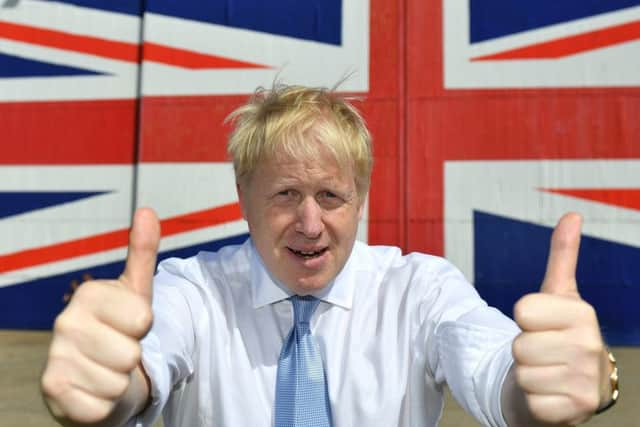Why the Scotland Office and Iran could make or break Boris Johnson’s leadership
New leaders crave the “bounce” that follows taking office and they obsess over the momentum of their first 100 days.
Few governments will have come into power with as big an in-tray and with so many items in it marked “urgent” if, as expected, Boris Johnson is named Tory leader this morning.
Advertisement
Hide AdAdvertisement
Hide AdHarold Macmillan is supposed to have warned of the risk from “events, dear boy, events”, and the most pressing and most dangerous issue facing Johnson falls into that category.


He must prove he can de-escalate the crisis in Iran while maintaining his favour with a White House that seems determined to push towards conflict. Johnson also has to escape his own unfortunate record on Iranian relations, with the mishandling of the case of jailed British-Iranian mother Nazanin Zaghari-Ratcliffe continuing to hang over him.
Gordon Brown’s first six weeks in office were dominated by crises – failed terror attacks in London’s West End and on Glasgow Airport, deadly floods across the UK, and an outbreak of foot and mouth disease.
His solid, reassuring response to each boosted the popularity of a weary Labour government formed mid-term out of internal conflict.
Johnson has to hope the Iran crisis can deliver the same boost and not the first foreign policy error of his premiership. The other major challenge is more predictable: Brexit.
Forget everything that’s been said about negotiations going down to the wire.
Johnson’s big decision has to be made, perhaps not the moment the door of Number 10 closes behind him, but certainly when he first meets his Cabinet. Is he serious about rejecting the Irish border backstop and therefore going ahead with a no-deal Brexit?
If so, then the scale of opposition in the Commons means he will have to be ready to either call a general election or hold a referendum.
Advertisement
Hide AdAdvertisement
Hide AdIf Johnson believes he can finesse the backstop, probably by accepting a much longer post-Brexit transition period, he still has to be ready to go to the people if he fails to win over Brexiteers in the European Research Group (ERG).
But he has to choose a path quickly.
If it’s negotiation, then he will have to work as hard in Brussels as he does at Westminster to convince them that he can get a deal through the Commons.
Because of his reputation, Johnson starts with a deficit of credibility in European capitals.
Before he can tackle anything else, Johnson has to assemble his team.
He has crucial decisions to make in all the major portfolios, notably who he installs as the Chancellor.
The appointment will have to deliver at least some of Johnson’s spending promises while rescuing the UK economy from a no-deal Brexit. How Johnson assembles the Scottish arm of his administration is also significant; a longer Brexit transition risks alienating Scottish Tories, who technically hold the balance of power in the Commons.
Who will fill the vital role of special adviser for Scotland in Downing Street, effectively the “quality control” officer for political decision-making when it comes to devolution?
How will the Scotland Office be restructured?
Those decisions will have far-reaching consequences for the shaky Tory revival north of the Border.
